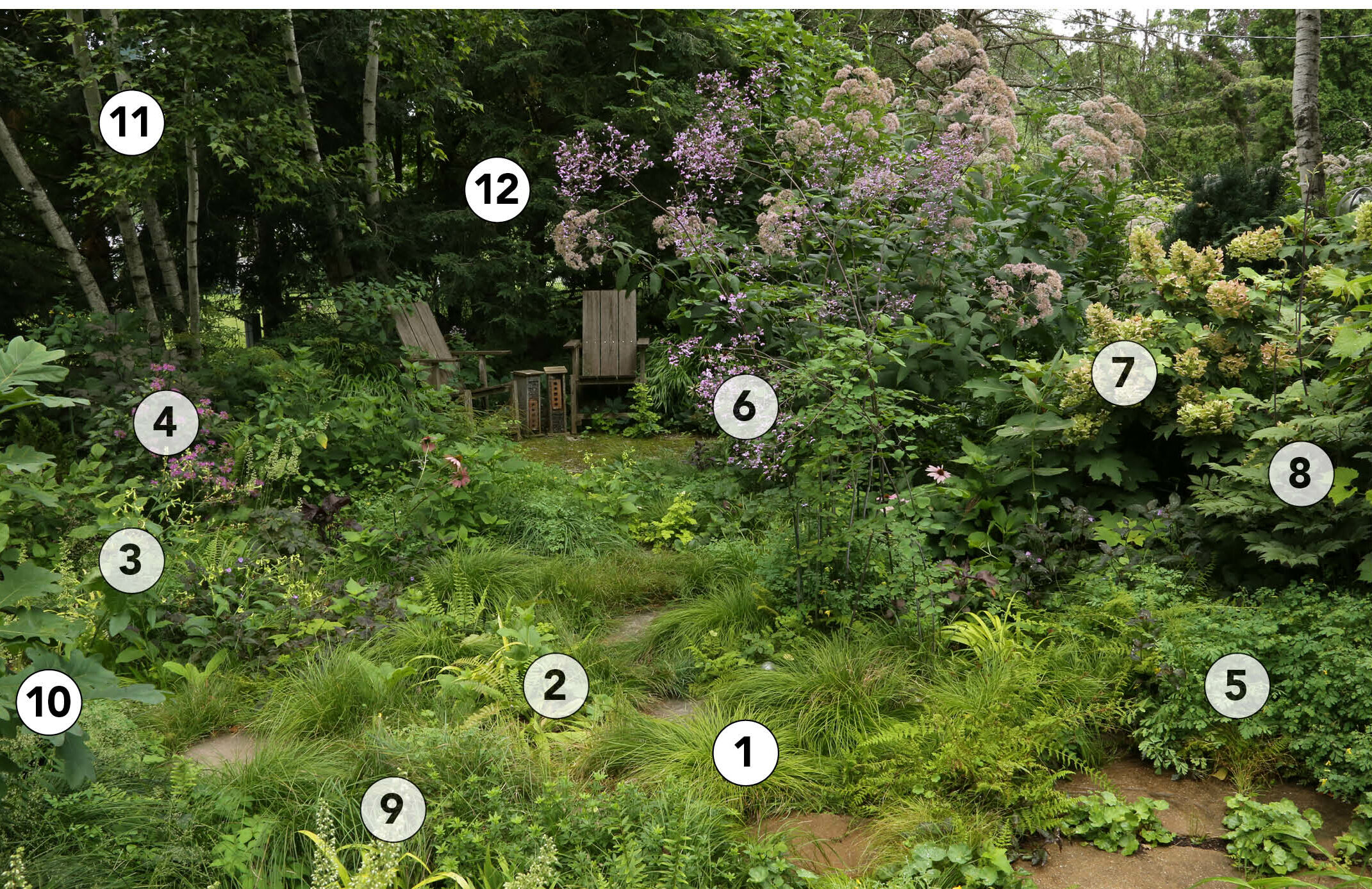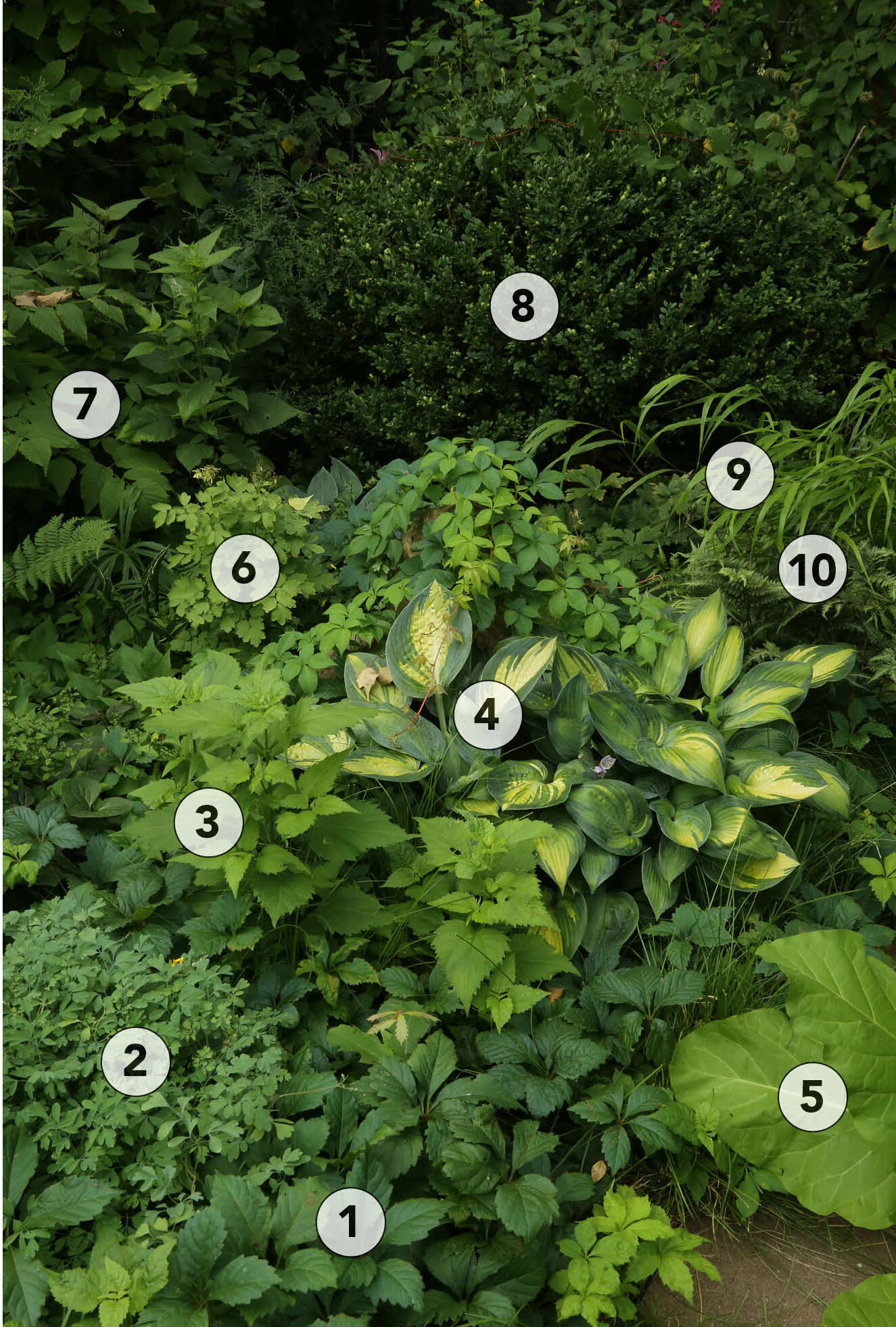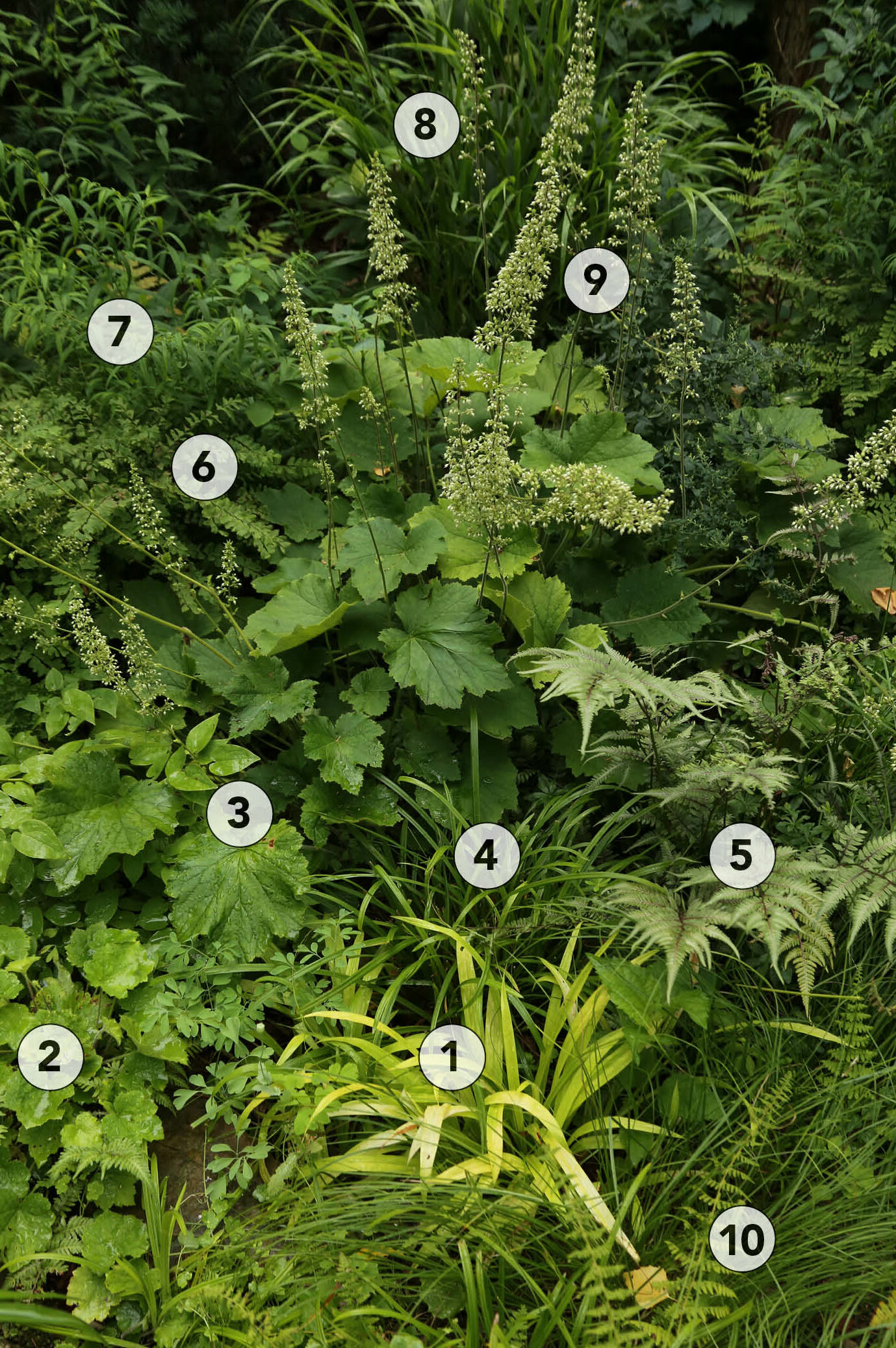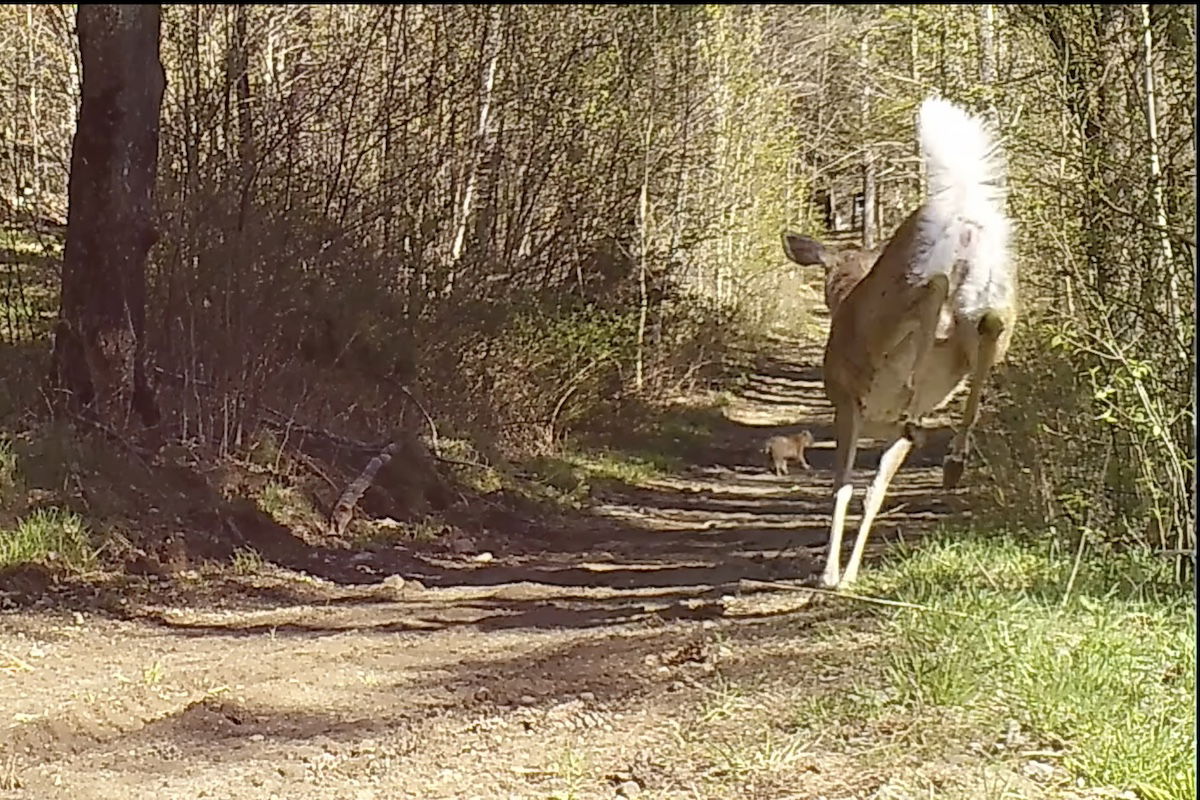Starting a new garden from scratch can be daunting, but it’s also a fantastic opportunity to create exactly what you want. The vision I had for my new garden (two decades ago) was based on the many small English gardens that I was lucky enough to visit—not the gardens with impeccably maintained lawns and neatly clipped hedges, but those that had plants spilling out of every nook and cranny. Since its inception, the landscape has been slowly undergoing a transformation over the past decade, from a traditional shade garden to a more naturalistic one that embraces an ecology-first mindset. This evolution, however, hasn’t sacrificed the original intention of my dream garden—that it be a visually appealing space with plenty of activity.
Structural plants were the first focus, after the hardscape was complete. Several trees were added to provide height and beauty and to eventually create the shade that would make the backyard more enjoyable for people. Shrubs and herbaceous plants were next on the list. At first the garden exposure was full sun, so I designed mixed borders that were chock-full of sun-loving perennials. As the structural trees grew larger and produced more shade, these initial plantings needed to change. Beautiful native, shade-tolerant species form the foundation of my garden now and are infused with 25 to 30 percent nonnatives. Select exotic species bridge floral gaps when the native species aren’t blooming. I have heard many a gardener lament that they are “forced” to garden in shade, but I am not one of those; I love my little shade garden and all the plants and animals it supports. The following are just a few of my favorite shade-loving, eco-friendly species.
- Common blue violet (Viola sororia, Zones 3–7)
- Joe Pye weed (Eutrochium maculatum, Zones 4–8)
- Purple coneflower (Echinacea purpurea, Zones 3–8)
- Japanese forest grass (Hakonechloa macra, Zones 5–9)
- Hick’s Japanese yew (Taxus × media ‘Hicksii’, Zones 4–7)
- Quaking aspen (Populus tremuloides, Zones 1–6)
- ‘White Tigress’ maple (Acer ‘White Tigress’, Zones 4–9)
- Lady fern (Athyrium filix-femina, Zones 3–6)

- Mountain sedge (Carex montana, Zones 4–9)
- Christmas fern (Polystichum acrostichoides, Zones 3–9)
- Langsdorff’s flowering tobacco (Nicotiana langsdorfii, annual)
- ‘Claire Grace’ wild bee balm (Monarda fistulosa ‘Claire Grace’, Zones 3–8)
- Yellow corydalis (Corydalis lutea, Zones 5–7)
- Giant meadow rue (Thalictrum rochebrunianum, Zones 3–8)
- ‘Alice’ oakleaf hydrangea (Hydrangea quercifolia ‘Alice’, Zones 5–9)
- Black bugbane (Actaea racemosa ‘Atropurpurea’, Zones 3–8)
- ‘Autumn Bride’ hairy alumroot (Heuchera villosa ‘Autumn Bride’, Zones 3–8)
- White oak (Quercus alba, Zones 3–9)
- ‘Whitespire’ gray birch (Betula populifolia ‘Whitespire’, Zones 3–6)
- Canadian hemlock (Tsuga canadensis, Zones 3–7)

-
- Virginia creeper (Parthenocissus quinquefolia, Zones 3–9)
- Yellow corydalis (Corydalis lutea, Zones 5–7)
- White snakeroot (Ageratina altissima, Zones 3–8)
- ‘June’ hosta (Hosta ‘June’, Zones 3–9)
- Night flowering tobacco (Nicotiana sylvestris, annual)
- White baneberry (Actaea pachypoda, Zones 3–8)
- Goatsbeard (Aruncus dioicus, Zones 4–8)
- ‘Green Gem’ boxwood (Buxus ‘Green Gem’, Zones 4–9)
- Japanese forest grass (Hakonechloa macra, Zones 5–9)
- ‘Branford Beauty’ painted fern (Athyrium ‘Branford Beauty’, Zones 4–8)

- ‘Lemon Zest’ Japanese woodland sedge (Carex siderosticha ‘Lemon Zest’, Zones 5–8)
- Foamflower (Tiarella cordifolia, Zones 4–9)
- ‘Autumn Bride’ hairy alumroot (Heuchera villosa ‘Autumn Bride’, Zones 3–8)
- Wood gray sedge (Carex grisea, Zones 3–8)
- ‘Branford Beauty’ painted fern (Athyrium ‘Branford Beauty’, Zones 4–8)
- Maidenhair fern (Adiatum pedatum, Zones 3–8)
- Blue-stemmed goldenrod (Solidago caesia, Zones 4–8)
- Japanese forest grass (Hakonechloa macra, Zones 5–9)
- ‘Twilight’ aster (Eurybia macrophylla ‘Twilight’, Zones 3–9)
- Pennsylvania sedge (Carex pensylvanica, Zones 3–8)





